
Kwarme Bediako Biography
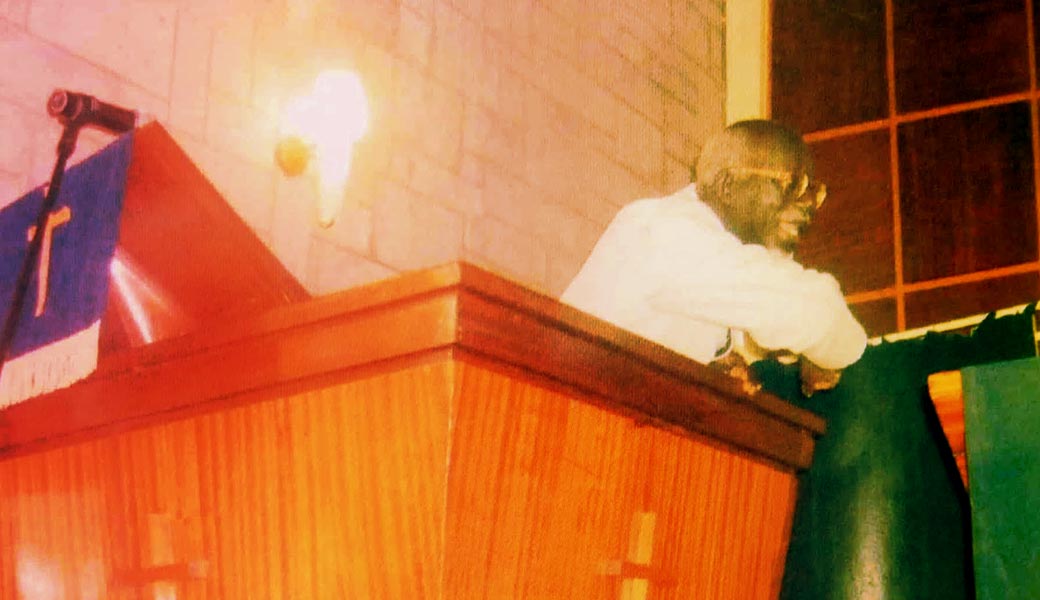
In the brochure prepared for Kwame Bediako’s funeral, he is described as a “Man of God, Visionary, Inspirer, Builder, Theologian, Scholar, Teacher, Husband and father who served God and His people in Africa.”
Early Years
Second out of ten children born to Ephraim Nkansah Bediako, police inspector, and Madam Selina Duodu, trader, Manasseh Kwame Dakwa Bediako was born on the 7th of July, 1945, in Accra, Ghana. Both parents being from Agona Nsaba in the Central Region of Ghana, the family spoke Twi, an Akan language. However, due to the fact that his father was a police officer stationed at the Police Training Depot in Tesano, near Accra, he learnt and studied the Ga language, which is the reason why he was fluent in both Twi and Ga. His parents were Presbyterian believers.
After his education in primary school, Kwame continued to secondary school at Mfantsipim School in Cape Coast, the same school where the former Secretary General of the United Nations, Kofi Annan, was his senior by a few years. Bediako then studied French at the University of Ghana, in Legon. After receiving a scholarship he continued his postgraduate studies in France at the University of Bordeaux. He specialized in modern French literature and African literature in French. In 1973, he gained his doctorate degree.

Bediako’s conversion
Due to the fact that Bediako’s parents were not fervent Christians, before leaving Ghana to continue his studies in France, his father, concerned about his life abroad, took his name to a shrine to ask for his protection. Bediako had avoided Christian meetings as a student at Legon, but he was often in dispute with some of his Christian friends over Christian claims. It was in 1970, when he was studying at Bordeaux University, that he was collared by the Lord Jesus. His conversion was like that of Saul on the way to Damascus.
Badiako was taking a shower when he felt an irresistible force imposing the fact that Christ is the truth, the integrating principle of life as well as the key to true intellectual coherence, for him and for the whole world. The atheist, self-consciously constructing an intellectual world without God, realized that intellectual life without Christ was futile on the basis that Jesus Christ is “the key to all the treasures of wisdom and knowledge” (Colossians 2:3). This was not for Kwame Bediako merely an intellectual conversion; his penchant for evangelism and mission started to grow, and he became active in evangelizing students and children. He ran a Good News Club for the Arab children around their home at Bordeaux, France, to which he invited Gillian Mary to help him. She would later become his wife and a great helper in marriage.
Husband and father

After his conversion, Kwame Bediako started to attend Church in Bordeaux. It was there that he met Gillian Mary from Blackburn, England, who was in France for language study. They came to believe that the Lord was leading them to marriage. In 1973, they married and Gillian Mary became his ministry partner. In giving tribute to her soul-mate, Gillian Mary Bediako wrote “Kwame was my very loving and dearly loved husband for nearly 35 years. He was also my soul-mate, my best friend, my counselor, my encourager and my advocate.” There is no one who can know a good husband better than his wife, and her words are clear – Kwame was a good husband.
Their marriage was blessed with two sons, Yaw and Kwabena. Though Kwame was a man with enormous responsibilities, he did not neglect his role as a father. His humility as a good father made him willing to serve as chairman for the PTA of Akosombo International School, which his sons attended. His commitment to the school was such that he was asked to serve a second term even after his sons had left the school.
Giving tribute to their father, Kwame’s sons wrote “He did not mind when a young Yaw came up to him while preaching; he did not hush him up and send him away. Instead, he picked Yaw up, listened to what his son had to say, replied, and then let him go.” How similar this is to Mathew 19:14, when Jesus says, “Let the children come to me…” As a father, Kwame did not lack time to play with his sons, and watch movies with them though he would often end up sleeping in the chair. He was there for his wife and children as he was there in the ministry of our Lord Jesus.
A man of God

After his Pauline conversion, Kwame wanted to leave his literature studies in order to serve God, but he was advised to finish his studies first. Soon after getting his Doctorate in literature, together with his wife, he continued his studies at the London Bible College (now London School of Theology). They studied there from 1973 to 1976. In 1796, he returned to Ghana to teach at Christian Service College (now Christian Service University College), Kumasi.
At Kumasi in 1978, under Rev S.R. Ntiforo, the Ashanti Presbytery Chairman and district Pastor at Adum, Kwame Bediako was ordained as a minister in the Presbyterian Church of Ghana (PCG). After his ordination Kwame was immediately sent by PCG to continue his theological studies at the University of Aberdeen, Scotland. Studying under his mentor, Professor Andrew Walls, Kwame graduated in 1983. With the blessing of Presbyterian Church of Ghana, Kwame taught a year in the department of Religious Studies, University of Aberdeen, at the request of Professor Walls.
In September 1984, Kwame returned to Ghana with his family, and was appointed Presbyterian and Resident Chaplain to the Accra Ridge Church, where he served three years. A good preacher and leader, in three years he had impacted the Church, which grew in numbers and knowledge as many members who were under his leadership testify. One of things that his children will always remember is how after leaving Accra Ridge Church, each time that he was invited back to preach, the church was full. After the service they had to wait for him as he had to greet everyone before leaving.
After leaving the leadership of the Church in order to concentrate on research and theological work, Kwame did not stop using his preaching gift. Concerning preaching, one memorable occasion was preaching during the Akuapem people’s annual festival known as Odwira. A Christian preacher being given an opportunity to preach the word of God in the presence of the Akuapem paramount chief, religious leaders and priestesses at the traditional durbar grounds was courageous and is still in the minds of many people. We can say that as well as a Pauline conversion, he had the same zeal as the Apostle Paul in reaching out to the people of other faiths with the Good News of Jesus Christ.
Visionary, Inspirer, Builder,

In 1974, Kwame Bediako attended the Lausanne Congress on World Evangelization. During the Lausanne Congress he had a vision of establishing a research center which would focus on the study of the relation between Gospel and culture. Discussing the vision with a friend later, Kwame said “as the vision poured out from my soul, Gillian wrote down the ideas.” Kwame and Gillian were not just a compatible couple in terms of husband and wife but in their ministry also.
After discussing with PCG leaders in 1984, Kwame started the center which was called Akrofi-Christaller Memorial Center for Mission Research and Applied Theology. The foundations for the center were laid during his period at the Accra Ridge Church, so that from 1985 to 1987, Kwame worked as Director part-time and full-time from 1987, when the center began life at Akropong/Akuapem. Akrofi-Christaller Memorial Center for Mission Research and Applied Theology (ACMC), Now Akrofi-Christaller Institute of Theology, Mission and Culture (ACI) in 1998 was given the status of a post-graduate institution by the National Accreditation Board of the Ghana Ministry of Education. In collaboration with the School of Theology of the University of Natal, the Institute started offering Masters of Theology in African Christianity, followed by PhD in 1999 and Master of Arts MA in 2005. All the programmes of ACI are nationally accredited and since 2006, the Institute has its own charter to award degrees.
Kwame was not involved in the establishment of ACI only; there are many national and international institutions that he had played a big role in their establishment or management. Some of these include:
- International Fellowship of Evangelical Mission Theologians ( INFEMIT), founded by Vinay Samuel from India, Rene Padilla, Samuel Escobar and Orlando Costas, from Latin America and Kwame Bediako from Ghana. They were all participants of the 1974 Lausanne Congress on World Evangelization.
- African Theological Fellowship (ATF), which Kwame was the General Secretary of till his death.
- African Theological Initiative (ATI) that ran over ten years from 1992, with initial assistance of The Pew Charitable Trust, USA.
Kwame Bediako was not only a force behind many institutions’ development. As a visionary, inspirer and builder he impacted many people’s lives. He encouraged many to go for their studies. He encouraged his own wife to pursue a PhD in theology. Many of those whom he mentored are professors, PhD holders and Masters’ holders who are involved in many different positions serving our Lord Jesus Christ, in Africa and across the world.
Theologian, Scholar, Teacher

Professor Rev. Dr. Kwame Bediako was a well-known theologian not only in Africa but also across the globe. He remains one of few African scholars who turned down many offers from western theological institutions and stayed in Africa where he served till his death.
In 1983 under the guidance of the missiologist and church historian Professor Andrew Walls, Kwame Bediako completed his thesis. The thesis was published as Theology and Identity: The Impact of Culture upon Christian Thought in the Second Century and Modern Africa (1992). In this book Kwame examined how theologians of the second-century dealt with cultural and religious issues posed for Christians by the Greco-Roman past, and how the twentieth-century African theologians dealt with similar challenges from the African past.
The book was nominated as a finalist for the 1993 Harper-Collins Religious Book Award. In the book ‘Seeing New Facets of the Diamond’ written by many theologians and scholars who worked with or were mentored by Kwame Bediako, his friend Kwabena Asamoah-Gyadu pointed out that “what made Kwame Bediako’s scholarly endeavours unique was his ability, unlike several others in the field of African theology, to treat Jesus Christ as universally, existentially and eschatologically relevant for African world.”
For Kwame Bediako Christianity was a universal faith, which has answers for particular questions arising out of every context, including Africa. Talking about him as theologian, scholar and teacher, his mentor Andrew Walls indicates that, “he charted new directions for African Christianity theology. He labored so that generations of scholars, confident equally of their African identity, might be formed in Africa, and to that end he created a new type of institution where devotion to scholarship and understanding of the cultures of Africa would be pursued in a setting of Christian worship, discipleship and mission.”
Kwame is known for his scholarly works on the importance of mother tongue in theology and Christian faith translation. It is not surprising to note that the two persons whose names are commemorated in the Institution that he established, Akrofi and Christaller, worked on the first Scripture translation in the Akan language, and wrote other many articles in the mother tongue which still have an impact in Churches and theological institutions in Ghana. Kwame Bediako had published three books and many articles, and his scholarly works still contribute to the field of theology, not in Africa only, but all over the world.
As a teacher, being Rector of ACI and full-time lecturer did not stop him going across the Globe as part-time lecturer in different Institutions and Universities. For instance, from 1986-1998 he was a visiting lecturer in African Theology at University of Edinburgh in Scotland. From 1997, he was an honorary professor in the School of Theology, University of Kwazulu-Natal, now the School of Religions and Theology, University of Kwazulu-Natal. Kwame did not forget to keep training the pastors, especially those who were not able to have theological training, or those who needed to be trained for effective mission in their context. Christian youths were not left behind as he trained many young, and mentored many of them. His love for children was known and he always had time for children.
Legacy
The Apostle Paul pointed out that Christians never die, they sleep. Kwame may be now with the Lord awaiting us to receive together our rewards, but his many deeds still speak and are visible today. He is unforgettable, not merely because of ACI, the institution that he established, or other institutions that he started or co-founded with others. He is remembered because his thoughts are still with us contributing to the edification of the body of Christ.
In his memory ACI launched an annual public lecture (Kwame Bediako Memorial Lecture). The Oxford Centre for Mission Studies based in the United Kingdom, where he served as Board Chairman for a time, also had launched the Stott-Bediako Forum, an annual seminar series in honor of these two important theologians.
Kwame Bediako’s recognition has gone beyond the theological sphere, as in 1996, Kwame was elected a fellow of the Ghana Academy of Arts and Sciences. As Andrew Walls wrote in his funeral tribute, ‘God does bury his workmen but carries on his work and theirs.’ Kwame’s works are still going on among those who lived and worked with him, and us also who did not know or meet him physically. Few theological institutions lack his scholarly publications, as there are many in different libraries and online databases.
“The Lord is leading me to rest.” Those were the last words of Kwame Bediako that he told those who were around him on his deathbed. Only one who had encountered Jesus, worked and walked with Him can have this kind of peace of mind when facing death. The Epistle to the Hebrews was Kwame’s best loved book of the Bible, to him it was the Epistle to Africans too.
Beside the entrance of ACI there is a panel indicating the dates and the personalities who officially launched ACI. On that panel the following words are mentioned “Therefore, since we are surrounded by such a great cloud of witnesses,” Hebrews 12:1. Kwame Bediako joined that cloud of witnesses on Tuesday, 10 June 2008. He is among those brothers and sisters who had gone before us, but who left a legacy for men and women of faith that we are learning from.
Our prayer goes to his family and to his loved institution, ACI and other institutions that he served. We wish them to take forward what he started before joining him for the everlasting life with our Lord Jesus Christ.



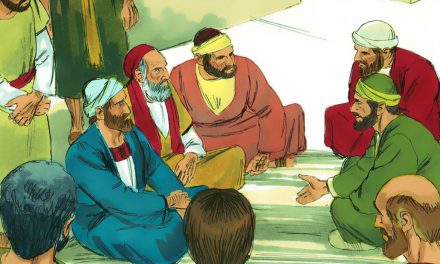

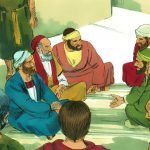

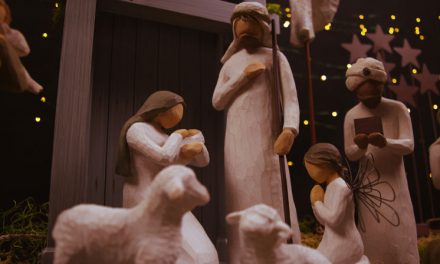



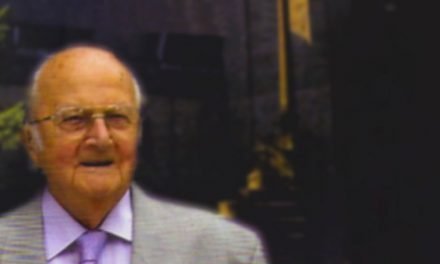

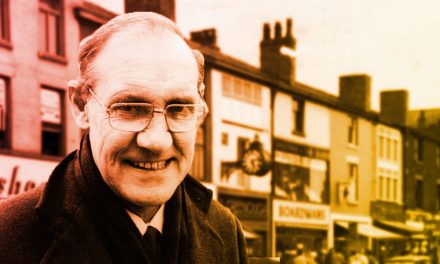
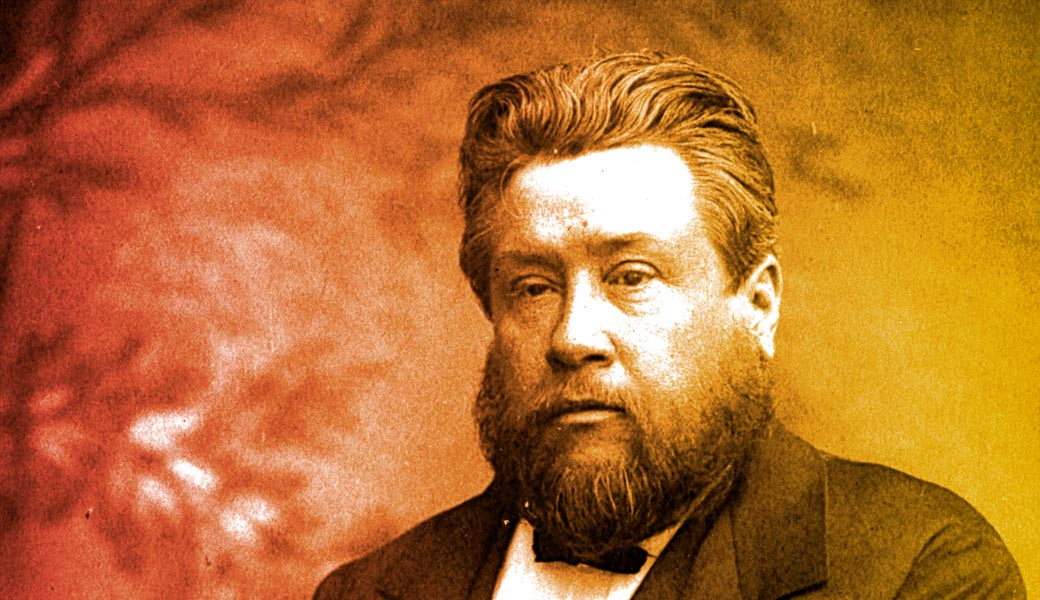
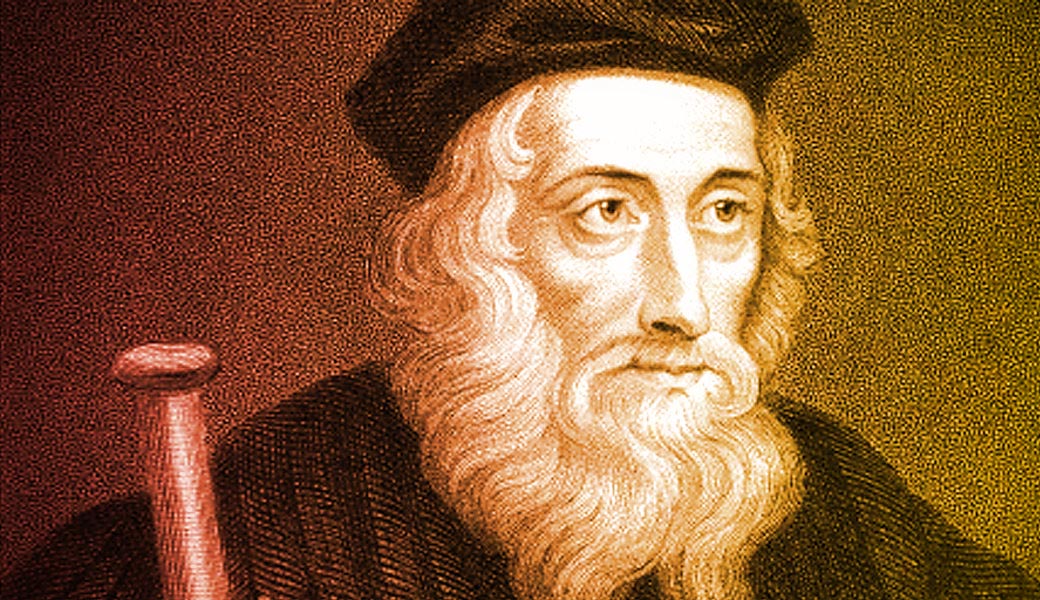


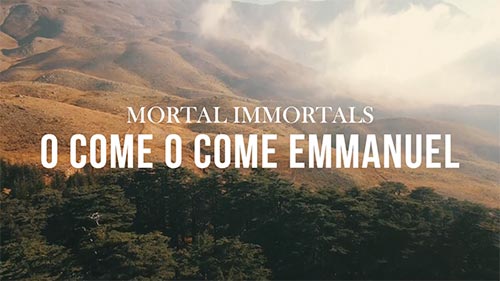
Recent Comments